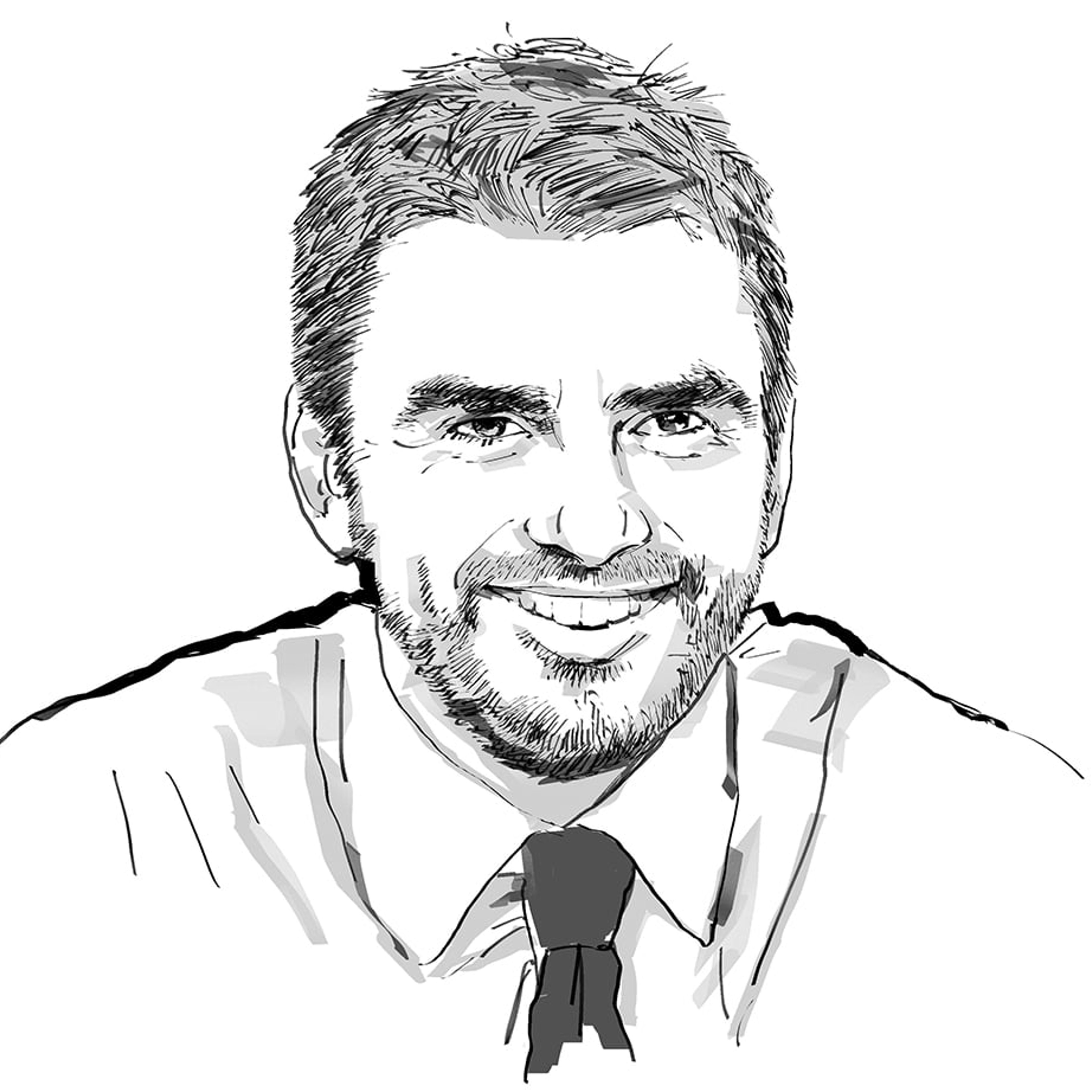As with any investment, your capital is at risk. Past performance is not a guide to future returns.
Ross Mathison (RM): Why do I have a colleague who is phoning Australian used car dealers in the middle of the night? This video is going to shed some light on that and is part of a series where we get to know some of the members of our team and what their roles are.
Today I'm with Hatty Oliver, who joined Baillie Gifford from the newspaper industry, brings a different skill set, and on our team is an investigative researcher. When I decided to join Baillie Gifford five years ago, one of the reasons that I decided to join was hearing about this role of an investigative researcher, which I'd never come across before. And I thought it was fascinating and a sign that we were doing truly different research.
Can you start us off by just explaining what is an investigative researcher?
Hatty Oliver (HO): So it's really about speaking to people. That's what my job is, speaking to as many people as possible. So with the Australian used car dealers, for example, it's talking to them about how they feel about a car listing site that we're invested in.
It could be going to [the] Sturgis Motorbike Rally to speak to bikers about how they feel about particular brands of bikes, speaking to dog walkers in Central Park about what they think about pet insurance, speaking to radiologists at a conference about their sector. And often it's talking to as many ex-employees of a company as I can to try to get a better sense of the culture of the company and what's going on.
RM: And obviously, we spend a lot of time in the financial analysis role as well, speaking to former employees. But with you, your conversations are with a different level of employee.
You're often speaking to the employees who are closer to the day-to-day. They've not been given a polished company presentation to share with you. These are companies telling you exactly what's going on.
But that means you need to speak to a huge volume of these employees to try and understand what's the real picture and how you can calibrate these different opinions. Why does everyone not do this type of role? Why does every investment team not have an investigative researcher?
HO: I think it's probably because it's time-consuming and the length of our holdings means that we can invest that kind of time. I try to speak to as many people as I can and often people don't want to speak initially.
So the first 15 used car dealers that I phone up might just put the phone down because they're busy or they don't understand what I'm asking. So that makes it time-consuming, so quite a lot of knockbacks.
Or just the nature of it is quite time-consuming. So with the motorbike example, going and hanging out with girls in biker gangs to kind of understand how they feel about brands of bikes. It takes some time.
And the people that I speak to have to feel really comfortable that we're not going to share the research externally, that it's going to be anonymized, so they can speak in confidence candidly about the company that they work for, about the sector that they're in, and feel sure that we're not going to share that beyond BG.
RM: Yeah, and I think that's something that comes through very clear. Even when I, on your team, read your report, I don't even get to see the name[s] of these people.
That anonymity is really, really important because often we're taking high-level conclusions, which are in no way attributable to any individuals and having these discussions with companies about this, which is leading to us having a much more informed discussion with companies. And companies, that I find, really lean into that quite often.
The investment world is all about trying to extract information from companies but when we're also sharing findings with companies that's been really helpful for me in building relationships.
So I can think of examples where I've got to speak to lower levels of company management or where I've had a company coming over to Edinburgh to have a discussion because they see us as a genuine investor who's putting in the hard yards to build up a picture of what's going on in the companies.
With everyone on the team, they want to have a role that they feel can make an impact. Do you feel like your research is able to make an impact and benefit our clients?
HO: Yeah, I feel like it gives us a deeper understanding of the companies that we hold, and it has helped us make decisions about buying companies, [it’s] given us that confidence that the company does have a really special culture, so we can go ahead. And the reverse has been true too.
In 2024, for example, I spoke to lots of ex-employees of a healthcare holding, and came to the conclusion that the chances of the turnaround that we were looking at being successful wasn't as high as we thought, so we kind of stepped away. So yeah, I do feel like my work brings an impact and a different understanding.
RM: Yeah, and beyond just leading to buy a new position or sell a position, very often for me, the real benefit is an understanding of how what the company says is a strategy that matches in with the reality. And very often for me, it feels like the penny drops when I read your work and I understand. So thank you very much for this.
Hopefully that sheds some light on the role of the investigative researcher. A lot of hard yards, getting in touch with many people over many years, trying to build up a picture about what's truly going on inside an organization. The type of work that you can only really justify if you're looking to own a company for a decade or more. There'll be more to follow when I have conversations with other colleagues, but for just now, thank you, Hatty. Thanks very much.
Risk factors
This communication was produced and approved in February 2025 and has not been updated subsequently. It represents views held at the time and may not reflect current thinking.
The views expressed should not be considered as advice or a recommendation to buy, sell or hold a particular investment. They reflect opinion and should not be taken as statements of fact nor should any reliance be placed on them when making investment decisions.
This communication contains information on investments which does not constitute independent research. Accordingly, it is not subject to the protections afforded to independent research, but is classified as advertising under Art 68 of the Financial Services Act (‘FinSA’) and Baillie Gifford and its staff may have dealt in the investments concerned.
All information is sourced from Baillie Gifford & Co and is current unless otherwise stated.
The images used in this communication are for illustrative purposes only.
Financial Intermediaries
This communication is suitable for use of financial intermediaries. Financial intermediaries are solely responsible for any further distribution and Baillie Gifford takes no responsibility for the reliance on this document by any other person who did not receive this document directly from Baillie Gifford.
Receive regular emails, including manager updates, insights articles, podcasts and event invites.
SubscribeAbout the speakers

Hatty joined Baillie Gifford in 2015 and is a Researcher, specialising in global research on the Global Income Growth Team. She previously spent two years with London College of Fashion as a lecturer in cultural and historical studies and worked for the Times as a researcher for four years. Hatty graduated with a PhD in Media and Communications from Goldsmiths University in 2011 and MSc in Gender (distinction) from LSE in 2006.

Ross Mathison is deputy manager of The Scottish American Investment Company (SAINTS). He joined Baillie Gifford in 2019 and is a director of Aberlour, a Scottish children’s charity.
Related insights

The case for private growth equity
How companies like Stripe, Databricks and SpaceX are shaking up growth trends typically dominated by public markets.April 2025
Video|38 minutes
US Alpha Q1 update
The US Alpha Team reflects on recent performance, portfolio changes and market developments.April 2025
Video|9 minutes
Japan Growth Q1 update
The Japan Growth Team reflects on recent performance, portfolio changes and market developments.April 2025
Video |10 minutes
Related funds

Worldwide Responsible Global Dividend Growth Fund
The Fund aims to achieve a higher level of income than global equities whilst, over the longer term, achieving growth in both income and capital by investing primarily in shares of companies anywhere in the world which meet the relevant environmental, social and governance criteria and will exclude companies from certain industries and companies which are inconsistent with the principles of United Nations Global Compact for Business.
Worldwide Global Dividend Growth Fund
The investment objective of the Fund is to obtain a yield higher than that generally available from investment in global equity securities while, over the longer term, achieving growth in both capital and income. The Fund will principally invest in global equities and may also invest in other transferable securities, money market instruments, cash and cash equivalents.
The Scottish American Investment Company
SAINTS aims to be a core investment for investors seeking income. Its objective is to grow the dividend at a faster rate than inflation by increasing capital and growing income. The focus of the portfolio is on global equities, but investments are also made in bonds, property and other asset types.
